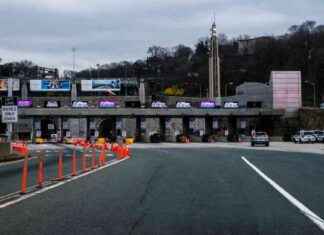A Valencian executive recounts that in order to meet potential clients in Barcelona he had to rent a small office because that was more efficient than linking his schedule to the frequency of the train. And no one is surprised anymore because the connection between Valencia and Barcelona, ??the third and second Spanish capital, are six daily trains that take an average of 3 hours and whose average cost is around 60 euros.
We have done the analysis comparing the tickets to travel from Valencia (Sorolla) to Madrid (all stations) this Monday, November 28 with those available to also do it to Barcelona (Sants), marking the return the next day in the existing operators. And the comparison shows an abyss between both connections.
The frequencies of the Valencia-Madrid train offered by Renfe -the only operator that also connects Valencia with Barcelona- are 18, which means multiplying by three those that allow passengers to travel the (still under construction) Mediterranean corridor, which only offers six.
The sum of routes between Valencia-Madrid, only on the outbound trip, are 15 High Speed ??trains, plus another three low-cost High Speed ??(AVLO), to which must be added the five routes managed by Ouigo, the second operator that joined the railway liberalization. And to this vast offer we must add the entry into circulation of iryo, which as of December 16 will also operate between Valencia and Madrid with 16 daily trains, which will foreseeably mean eight one-way connections and another eight return.
Meanwhile, to go to Barcelona from the cap i casal there is little to choose from for the chosen date, any weekday Monday of this month of November. Renfe offers a first train at 6:55 a.m., the one that usually travels full of professionals who get up early to get to Barcelona at the earliest possible hour, which is never before 9:45 a.m.
There are only two more options to travel to Barcelona before noon (9:15 a.m. and 11:15 a.m.) and the remaining three are divided between 3:15 p.m., 4:03 p.m. and 7:15 p.m. The distance between the options to travel to Madrid or Barcelona from Valencia is so wide that between the first time option and the second of the Valencia-Barcelona route there are room for six trains that connect Valencia with Madrid.
If the frequencies and times show the great differences between traveling to the center of the plateau or to the northeast of the peninsula, the prices also reveal a great disparity. In the same query for Monday, November 28, the 18 frequencies from Valencia to Madrid leave an average price of 48.14 euros with AVE (includes AVLO) at the time of writing this article.
The price chosen as a reference is the first offered by the operator and also the cheapest, since Renfe offers Basic, Choose or Premium rates. Only the tickets to travel with Ouigo have an average price of 23.8 euros, while those for iryo will be sold starting at 18 euros, as the company has announced these days.
On the contrary, the average price to travel from Valencia to Barcelona is 57.67 euros with the choice of the cheapest rates, the Basic.
The time it takes has been talked about at length, but it cannot be overlooked that the Valencia-Barcelona line takes three hours, the fastest route being the last one of the day, the one at 7:15 p.m., which is established at 2 hours and 49 minutes. On the other hand, the connection between Valencia-Madrid does not last two hours, except on the Alvia scheduled for 12:20 p.m., which stops at the Chamartín station and takes 2 hours and 20 minutes.
When the Mediterranean corridor is completed, although it will not be possible to reach the same speed, it will allow time to be considerably reduced and between Valencia and Barcelona it will be possible to travel in two hours. This will already be competitive with the car trip that involves at least three and a half hours and, at current energy prices, an outlay of about 30 euros in fuel. And we only talk about the way.
The connection between Alicante and Barcelona is as limited as that of Valencia, but it is also more expensive, since the average rate in the cheapest modality is 67.5 euros. There are six connections and the first part at 7:25 a.m. from the city of Postiguet to arrive in Barcelona at 12:17 p.m., and it is not the slowest route. The Intercity at 2:59 p.m. arrives in the Catalan capital at 8:40 p.m. Of course, the train offers stops in Elda, Petrer, Villena, Benicàssim or Benicarló, among other towns.
On the other hand, the alternatives grow if the destination is Madrid. With the same date chosen throughout this article, next Monday, November 28, there are 14 one-way trains from Alicante, and the average price is 62 euros, only five euros cheaper than the previous route.















